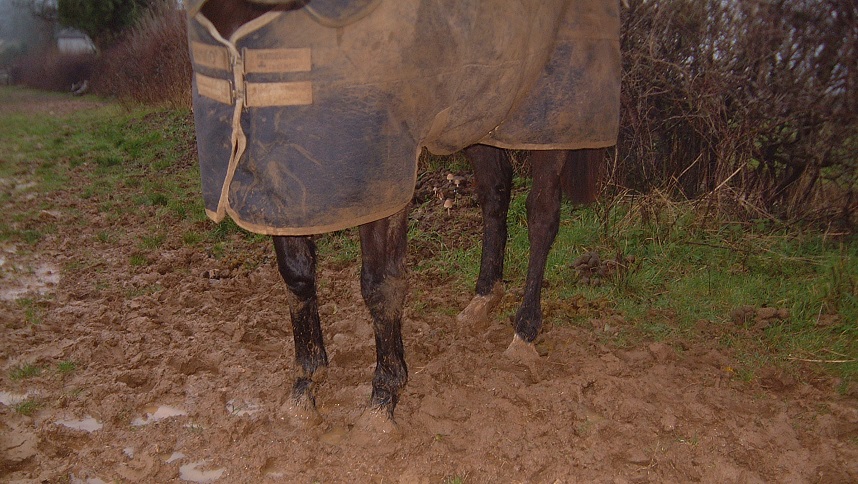Published 13th March 2018

It’s that time of year again! We’ve brought the outside hose out of its summer retirement, taped up the various holes it’s developed and we’re now ready to tackle the mud that is clinging to our horse’s legs when we bring them in from the field.
Unfortunately for some, this time of the year also brings the risk of mud fever, also known as Pastern Dermatitis. Painful sores and scabs that can, in severe circumstances, make your horse lame.
How to avoid mud fever:
- Leave feathers on – We’re aware that this is not suitable for everyone as some horses do not grow sufficient feathers and others may need to have them removed for competition or other cosmetic reasons. But a horses feathers are nature’s barrier from mud and contain natural oils that protect the skin.
- Minimal hosing – Many humans suffer from painful dry cracked hands over the winter, especially those of us spending time out in the cold with our horses. The reason for this being the frequent exposure to cold weather and water, not drying our hands properly and not immediately replacing the essential oils that we’ve just washed off. The skin on our horse’s legs is just as sensitive to this as we are. So if you have to wash their legs, make sure you apply anti-microbial ointment that is designed to kill any bacteria in the area whilst not causing any irritation to the skin.
- If minimal or no hair in the legs is an issue, once dry apply a moisturising barrier such as pig oil or barrier cream to ensure that the skin does not dry out too much and crack – which could lead to more problems.
- Protect against damage – there are a variety of turnout boots on the market that can help protect your horse’s legs from both mud and minor injury in the field. But be careful, these boots must be kept hygienic, otherwise the warm moist environment can become the perfect breeding ground for bacteria and can make problems such as mud fever even worse.
- Feed immune support – Often overlooked, feeding your horse an immune support supplement, to help to boost their immune system from the inside. Products like our Fight Back immunity support supplement.
- Leave scabs on – Yes we know, this is our most controversial point yet. But if your horse is receiving immunity support from the inside through supplements, you should not have to remove natures plaster.
- Don’t share!! – The causative organism(s) can be carried from one horse to another, so sharing a sponge, brush, towel etc used on the affected area between horses can lead to mud fever being spread from one horse to another.
If you would like to discuss any of the above with one of our Advisors, contact us using our online form HERE.
![]() Readers in the UK - please click here for more information
Readers in the UK - please click here for more information![]() Readers in Australia - please click here for more information
Readers in Australia - please click here for more information

